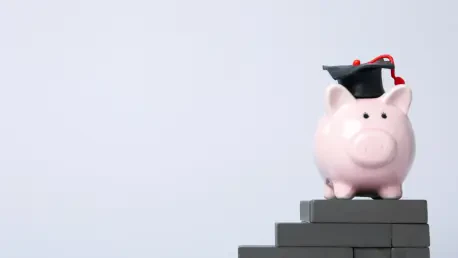I’m thrilled to sit down with Camille Faivre, a distinguished expert in education management who has dedicated her career to navigating the complex landscape of higher education policy. With a focus on innovative learning solutions in the post-pandemic era, Camille brings a wealth of insight into the challenges public university systems face, especially when it comes to federal government interactions. Today, we’re diving into a critical issue: the recent lawsuit filed by University of California employees and unions against the Trump administration, spotlighting concerns over funding cuts, academic freedom, and institutional autonomy. Our conversation explores the roots of this legal battle, the implications of financial pressure on universities, and the broader impact on free speech and campus life.
Can you walk us through what sparked this lawsuit against the federal government by UC employees and unions?
Certainly, Ethan. This lawsuit stems from a series of actions by the Trump administration that many in the UC community see as an overreach into the university’s operations. Over the past few months, the federal government cut at least $584 million in grants to UCLA, citing alleged civil rights violations related to the protection of Jewish and Israeli students. Beyond that, they’ve demanded $1 billion to restore this funding and issued a list of ultimatums that would significantly alter how the UC system functions. The coalition of faculty, staff, and unions views these moves as an attempt to impose ideological control, calling them unconstitutional and a direct threat to the university’s mission.
How do you interpret the term ‘financial coercion’ as it’s used in the lawsuit to describe the government’s actions?
The term ‘financial coercion’ really captures the essence of the pressure being applied here. The UC system relies on federal funding for about a third of its $17 billion budget, so cutting hundreds of millions in grants isn’t just a slap on the wrist—it’s a major blow to their operations. By tying the restoration of these funds to compliance with extensive demands, the administration is essentially forcing the university to bend to its will. This kind of leverage undermines the UC’s ability to make independent decisions about its policies and priorities, which is a cornerstone of public higher education.
The lawsuit raises alarms about threats to academic freedom and free speech. Can you elaborate on how the federal demands might affect these core principles?
Absolutely. The administration’s demands include things like installing a ‘resolution monitor’ with significant authority over campus affairs, approved by the federal government, and restricting speech by international students through policies targeting ‘anti-Western’ or ‘antisemitic’ disruptions. These measures directly challenge the open exchange of ideas that universities are built on. When you start policing speech or giving external entities control over campus decisions, it creates a chilling effect—students and faculty may self-censor out of fear. It’s a fundamental erosion of the environment where critical thinking and diverse perspectives thrive.
Let’s dive into the financial stakes for the UC system. How are these funding cuts impacting the day-to-day reality on campus?
The financial impact is staggering. With a third of their budget tied to federal funds, losing $584 million in grants to UCLA alone disrupts everything from research projects to student services. UC President James Milliken has warned that a major loss of funding could require $4 to $5 billion just to keep the system afloat. This means potential cuts to staff, reduced resources for students, and stalled academic initiatives. Faculty and students are already feeling the uncertainty—there’s a real fear of programs being scaled back or eliminated, which affects morale and the quality of education.
The administration’s demand for $1 billion to restore the $584 million in grants has been called ‘extortion’ in the lawsuit. What’s your perspective on this framing?
I think the label ‘extortion’ resonates because of the disparity between what was cut and what’s being demanded. Asking for nearly double the amount of the original grants suggests a punitive motive rather than a corrective one. It’s not just about addressing alleged civil rights issues; it feels like a power play to force compliance with broader ideological goals. Whether you agree with the term or not, it’s hard to see this as anything other than an attempt to financially strong-arm the UC system into submission, which raises serious ethical and legal questions about the role of federal funding in higher education.
Looking at the bigger picture, how do you see this situation fitting into broader trends affecting universities nationwide?
This isn’t an isolated incident. The lawsuit itself mentions a coordinated campaign by the administration to target universities, with civil rights investigations and funding freezes hitting institutions like Harvard and Columbia as well. There’s a pattern of viewing universities not as national assets but as obstacles to certain political agendas. This approach risks politicizing higher education in a way that could stifle innovation and diversity of thought across the country. If public universities like UC can be pressured through funding, it sets a dangerous precedent for how much control the federal government can exert over academic institutions everywhere.
What is your forecast for the future of federal-university relations given these escalating tensions?
I think we’re at a crossroads. If lawsuits like this one succeed in blocking coercive actions, it could reinforce the boundaries of university autonomy and protect academic freedom. However, if the federal government continues to weaponize funding as a tool for control, we might see a chilling shift where universities are forced to align with political priorities to survive financially. The outcome of this case could shape how public institutions navigate federal oversight for years to come, and I’m hopeful that the courts will prioritize the independence of higher education as a public good.









